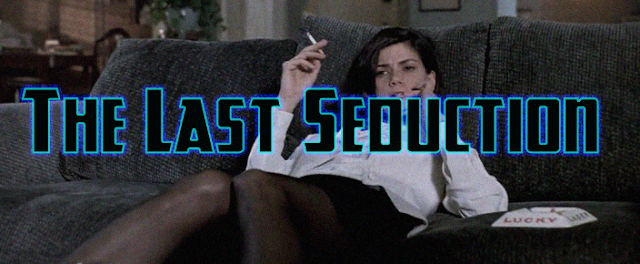Lock Stock and Two Smoking
Barrels has the signature cross over of story lines, which all come to a head
and make complete sense. There also always seems to be a group or a couple of
'good guys' who are forced to do something bad that they're actually ok with
doing. Then there are the usual 'bad guy gangsters' who surround the story with
confusion, pitch perfect dialogue and deserved outcomes. In the later films,
there does seem to be casualties but, where it all started, get tied up in a,
not exactly a neat box but a room full of corpses. It sounds horrific but it’s
a very amusing discovery scene.
The explain the complicated plot of all the groups and characters involved
would take literally the entire length of the film, so I'll summarise. It all
revolves around a card game gone wrong, a debt that needs to be paid, an attic
full of weed and a pair of antique shot guns.
Eddy and his four friends, Tom, Soap
and Bacon, all put money so that Eddy, a top poker player, can play at Hachett
Harry's table. He is a notorious gangster, porn merchant and all-round nasty
guy. He cheats at poker, forcing Eddy into a hole where he now owes Harry half
a million pounds. Meanwhile, in the flat next to Eddy's, are a group of dealers
planning to rob a group of posh guys who grow weed for another local gangster
Rory Breaker. So, Eddy and his friends decide to rob the neighbours when they
return from, they're heist. Harry's enforcer, Big Chris (and his son), visit
various people to make sure they pay back money owed and end up caught in the
mess later on.
This is the jist of the whole
story, but it does indeed end in a blood bath and a shower of guns. 'This is
fucked. No money. No weed. It’s all been replaced by a pile of corpses.'
What is interesting is the show of guns in the film, as any Brit knows, getting
hold of guns, shot guns not included isn't as easy as in the US. But Eddy and
his friends do have a problem getting guns and at one point end up with the
antique guns.
'A minute ago this was the safest job in the world. Now it's turning into a
bad day in Bosnia.'
The film is unbelievably quotable. Every other line I seem to have heard before
from someone somewhere. One in particular is during the heist at the weed
growers, the posh boys attempt to defend themselves are start shooting. The
leader of the group, Dog, gets fed up and says 'I don't fucking believe
this! Can everyone stop gettin' shot?'. This is actually in a late 90's
song at the start. I never knew until now it was from this film. I was laughing
my way through the film, which may sound bad because of the high body count but
the script is just too good. I'm sorry to say this but the British wit of
Ritchie's earlier films hasn't carried over to the later 'bigger' films.
The cast are absolutely perfect and anyone who knows Brit Grit or just British
films will recognise them all. Vinnie Jones of course is heavily used,
especially in the trailer, as most would have known him as the footballer. Now it’s
a shame for to be used as a stereotype, same with Jason Statham. But ah well,
we can sigh and hope they return to excellent form and maybe Guy Ritchie. One
thing that no one couldn't not notice is the lack of women. In fact, there are
really only two women in the film. One doesn't talk but does make a point with
a machine gun. The other is past middle age and only has a few lines at the
poker game. That's it. The two women aren't on the screen for more than a
minute each but when they're there, they make a point.
I've never been into gangster films and maybe this film isn't really about
gangsters, but there is something gritty and yet effortless about British films
of this genre. Nothing is glamourous and there’s always an underline that
everything is actually pretty cheap and rough. With American gangster films,
there is always that fine line where the life looks good but as always,
character is better over substance and my gad does Lock Stock have brilliant
characters. Plus, you know when a film has class and status when Sting plays
the lead's Dad who owns a bar.
In the words of Big Chris 'It's been emotional'.
For more #noirvember & #NeoNoir follow @little_sister_filmnoir
This was first posted as part of the Blind Spot Series 2015




























